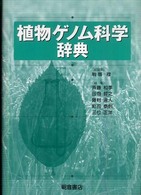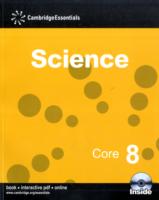- ホーム
- > 洋書
- > 英文書
- > Philosophy
Full Description
The German philosopher Robert Spaemann provides an important contribution to a number of contemporary debates in philosophy and theology, opening up possibilities for conversation between these disciplines. He engages in a dialogue with classical and contemporary positions and often formulates important and original insights which lie beyond common alternatives. In this study Holger Zaborowski provides an analysis of the most important features of Spaemann's philosophy and shows the unity of his thought.
The question 'Who is a person?' is of increasing significance: Are all human beings persons? Are there animals that can be considered persons? What does it mean to speak of personal identity and of the dignity of the person? Spaemann provides an answer to these questions: Every human being, he argues, is a person and, therefore, 'has' his nature in freedom. In order to understand the person, Spaemann explains, we have to think about the relation between nature and freedom and avoid the reductive accounts of this relation prevalent in important strands of modern thought.
Spaemann develops a challenging critique of modernity, incorporating analysis of modern anti-modernisms and showing that these are also subject to a dialectical development, perpetuating the problematic shortcomings of many features of modern reasoning. If we do not want to abolish ourselves as persons, Spaemann reasons, we need to find a way of understanding ourselves that evades the dialectic of modernity. Thus, he reminds his readers of 'self-evident' knowledge: insights that we have once already known, but tend to forget.
Contents
1. Philosophy in a Time of Crisis ; 2. Conversation, Recollection, and the Search for Happiness: Spaemann's Notion of Philosophy ; 3. The Dailectic of Enlightenment: Spaemann's Critique of Modernity and its Dialectic ; 4. Society, Philosophy, and Religion: Spaemann and the Dialectic of Anti-Modernism ; 5. Nature, Freedom, and Persons: Spaemann's Philosophy of Selbstsein ; 6. Christianity, Philosophy, and the End of Modernity







